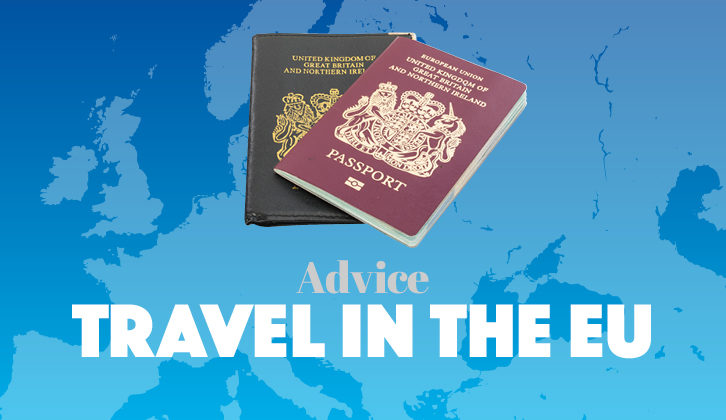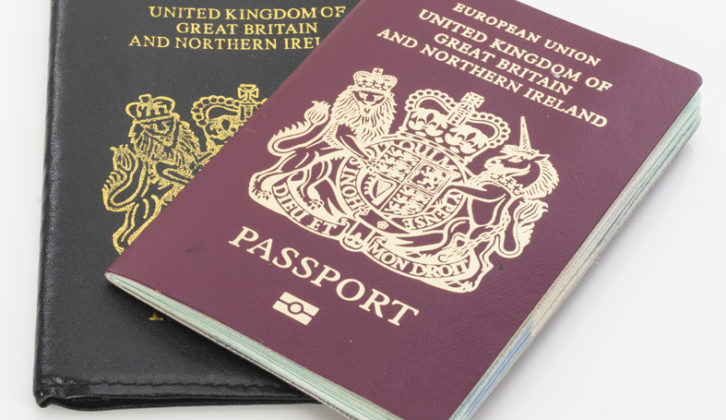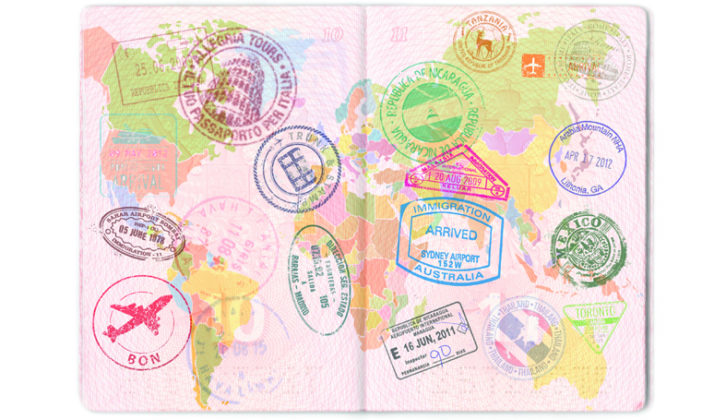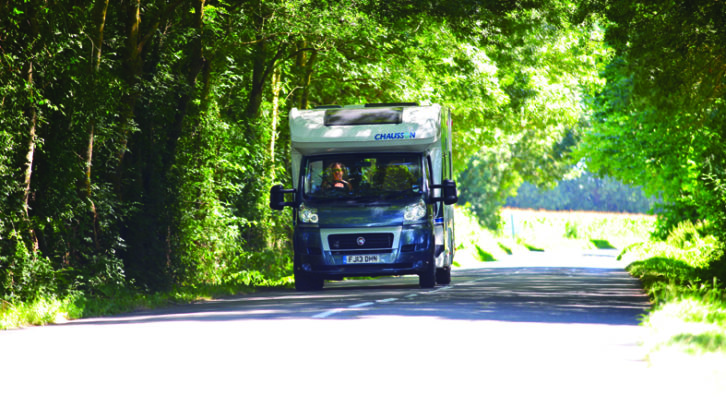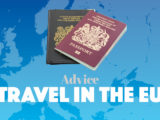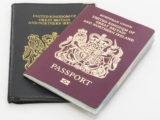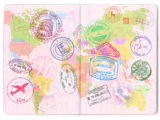Thanks to the pandemic, few of us will have had much opportunity to cross to mainland Europe for travel in the EU since the end of the Brexit transition period. But when leisure travel is once more back on the agenda, there are important changes to documentation, legislation and allowances that must now be considered, and preparations made weeks in advance (in the case of travelling with pets or updating passports) before embarking on a tour.
1 Passports
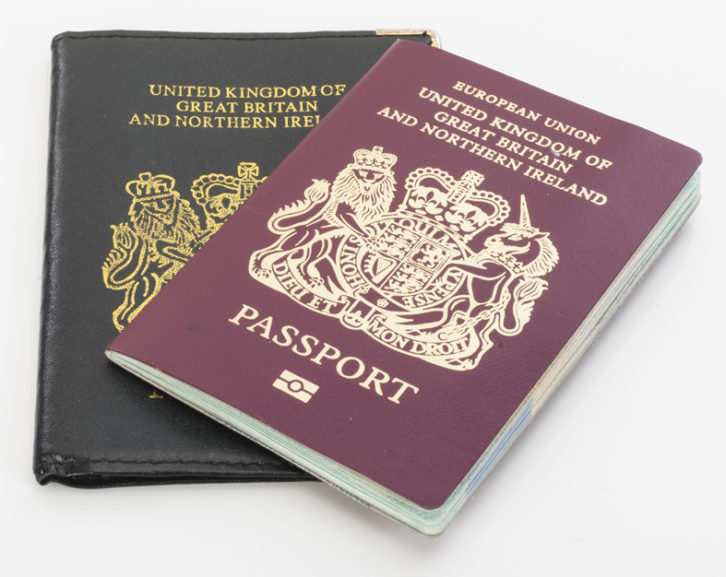
Is your passport still within date? A passport must have six months’ remaining validity and be less than 10 years old, even if it has six months left on it. The rules do not apply for travel to Ireland.
2 Global Health Insurance Card (GHIC)

This free card replaces the European Health Insurance Card, which is still valid while it remains in date. The GHIC gives you access to emergency state-provided healthcare during a temporary stay in EU countries, either at a reduced cost or for free.
It doesn’t cover private healthcare costs and it doesn’t replace travel insurance, which you should still take out. Note, too, that the GHIC cannot be used in Iceland, Norway, Liechtenstein and Switzerland.
3 Visas
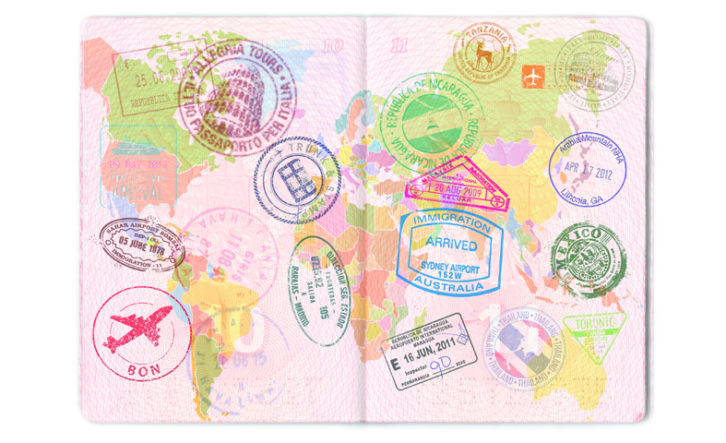
Visas are not necessary for short trips to most EU countries, and to Norway, Switzerland, Iceland or Liechtenstein, where you can stay for 90 days in any 180-day period. If you visit Bulgaria, Croatia, Romania or Cyprus, visits to other EU countries do not count towards the 90-day total.
At border controls, you might also need to produce a return ticket and proof that you have enough money to see you through your stay.
4 Phone roaming charges for Europe

Vodafone, EE, 02, 3 and Sky Mobole have no plans to introduce roaming charges at present, but it is worth checking with your provider for limits, rules and regulations. Data charges are limited to £45; you must actively opt in to spend more.
5 Driving
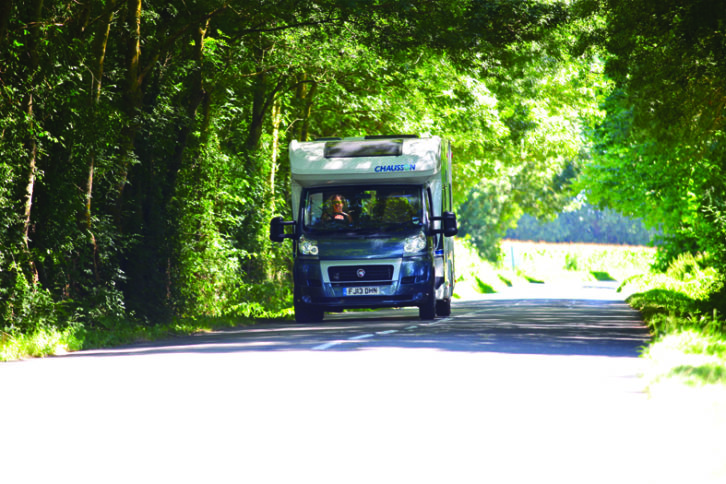
You can drive in the EU using your UK driving licence, but if it’s a paper licence, you need an International Driving Permit.
As well as this, you will need a Green Card from your insurer when driving bing your own vehicle and an additional Green Card if you are towing.
A GB sticker on the rear of your vehicle is compulsory in Spain, but is not needed if your numberplate has ‘GB’ on its own or with the Union flag. You will need it if it has a Euro symbol. Attaching one covers you on all counts.
6 Travel with pets

Spontaneity is now out of the question if you are touring with your pet, and this includes any trips you might be planning to Northern Ireland.
The new Animal Health Certificate replaces the now defunct pet passport scheme (unless the pass port was issued in the EU or Northern Ireland), and you should allow one month to obtain the certificate and relevant vaccinations. Your pet should be microchipped for travel.
Ireland, Northern Ireland, Finland and Norway also require dogs to be treated for tapeworm for each visit.
An Animal Health Certificate will be required for each trip.
You are limited to taking a maximum of five pets with you, unless you are attending training sessions or a show.
Further clarification can be found here.
7 Carrying food

With documentation for you, your family and your pets sorted, you can begin your holiday – but you might want to think again about packing sandwiches for the journey and filling the toolbox with a pork pie, your favourite cheese and milk for that cuppa when you pitch.
As non-members, we are subject to EU rules on which foodstuffs we can personally take into any EU country in our luggage and vehicles.
Coming under particular scrutiny are products containing milk, meat and their derivatives, which are seen as “a real threat to animal welfare throughout the Union,” according to the European Commission website.
The worry is the pathogens that can reside in milk meat and their products and that can cause foot and mouth disease and swine fever.
Exemptions to these rules are: “powdered infant milk, infant food, and special foods or special pet feed required for medical reasons, if weighting less than 2kg and provided that:
- such products do not require refrigeration before opening
- they are packaged proprietary brand products for direct sale to the final consumer, and
- the packaging is unbroken unless in current use.”
You can take fishery products with you – fish, shellfish such as prawns, lobsters and dead mussels and oysters – up to 20kg or the weight of one fish if this is higher, per person.
The weight is reduced to 2kg per person for animal products such as eggs, honey, live oysters, mussels and snails. Up to 10kg per person is allowed for fruit, vegetables and other goods.
The rules, laid down in Commission Delegated Regulation (EU) 2019/2122 in 2019, are the latest amendments to those drawn up following the foot and mouth disease epidemic in 2001.
Border controls could use scanning equipment and detector dogs to screen visitors’ baggage, and any personal consignments that are found to be in breach of the rules could be seized and destroyed – leaving you liable for costs or penalties.
If you have packed sandwiches, just make sure that you eat them before you pass through border control.
The good news is, at present, these rules do not apply to entering the UK. So if you pack a picnic for the ferry or want to bring back some delicious Comté from France, parmesan from Italy or salami from Germany, you can… for the time being, at least.
8 Personal allowances

Brexit sees the return of personal allowances when it comes to alcohol, tobacco and items of value, which should be for your personal use or given away as a gift.
You must transport them yourself and you are not permitted to combine your allowance with another person’s.
If you go over your allowances, you must declare all of your goods and pay tax and duty on all goods of the same type in that category.
It’s important to note that these items must be declared at www.gov.uk/duty-free-goods/declaring-goods before you arrive in the UK, otherwise they could be seized.
For alcohol, www.gov.uk/duty-free-goods states: “How much you can bring depends on the type of drink. You can bring in:
- beer – 42 litres
- wine (not sparkling) – 18 litres
- You can also bring in either: spirits and other liquors over 22% alcohol – 4 litres
- fortified wine (for example, port, sherry), sparkling wine and alcoholic drinks up to 22% alcohol – 9 litres”
You can, if you wish, split this last allowance, for example, you could bring in 4.5 litres of fortified wine and two litres of spirits (both half of your allowance).
9 Tobacco

You can bring in one of the items in the following list:
- 200 cigarettes
- 100 cigarellos
- 50 cigars
- 250g tobacco
- 200 sticks of tobacco for electronic heated tobacco devices
Again, you can split this allowance, so you could bring in 100 cigarettes and 25 cigars (both representing half of your allowance).
Anyone aged under 17 years has no personal allowance and must pay tax and duty on alcohol and tobacco for their own use before their arrival in the UK.
The allowance for other goods is up to the value of £390. If the value is more, tax and duty are paid on the total value of the goods, not just the value above the allowance.
For clarification on all of the new rules covering travel between the UK and the EU, go to www.gov.uk/visit-eu-switzerland-norway-iceland-liechtenstein.
If you liked this… READ THESE:
10 great citybreaks in the UK and Europe
If you’ve enjoyed reading this article, why not get the latest news, reviews and features delivered direct to your door or inbox every month. Take advantage of our brilliant Practical Motorhome magazine SUBSCRIBERS’ OFFER and SIGN UP TO OUR NEWSLETTER for regular weekly updates on all things motorhome related.
Brexit sees the return of personal allowances when it comes to alcohol, tobacco and items of value, which should be for your personal use or given away as a gift
